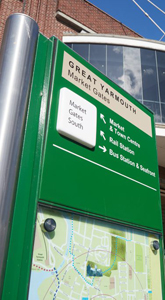What is a Business Improvement District (BID)?
A Business Improvement District (BID) is a public/private partnership in which business elects to boost the vitality of their businesses by making a collective contribution to maintenance, development and promotion of their commercial area. Since legislation was introduced in 2004 over 320 BIDs have been successfully established in the U.K.
- BIDs allow businesses in a defined area and business sector(s) to vote on which additional services they want to invest in, to improve their trading environment
- The vote is open to tenants – if a majority, both by number and by rateable value, approve the proposal, all ratepayers will contribute through their business rates
- BIDs give local businesses the power to effect changes that will benefit them in their local community. Improvements may include extra safety/security, cleansing and environmental measures, improved promotion of the area, improved events, and greater advocacy on key issues, but the legislation does not put a limit on what products or services are provided
- Businesses have the opportunity to agree on the projects for which they are contributing and to vote in a ballot on the amount of money they are prepared to raise, enabling them to become involved in the administration of the schemes themselves
- BIDs are operated by not-for-profit partnership organisations
- The interests of large and small businesses are protected through a system which requires a successful vote to have a simple majority in both votes cast and rateable value of votes cast
- Once voted for, the levy becomes mandatory on all defined ratepayers and is treated as a statutory debt
- The plan voted for has a lifespan of 5 years and further proposals will have to be reaffirmed through a vote
- Local Authorities play an important facilitating role and in particular are charged with legal responsibilities, including the provision of the ratings data to calculate the BID levy, the collection and enforcement of the BID levy via a ring-fenced BID Revenue Account that is then passed straight to the BID company, the organisation of the formal BID ballot, and the preparation and commitment to the baseline service agreements.
The benefits of BIDs are wide-ranging and include:
- Businesses decide and direct what they want in their area
- Businesses are represented and have a voice in issues affecting their trading area
- BID levy money is ring-fenced for use only in the BID area
- Increased footfall and spend
- Improved staff retention
- Reduced business costs
- Enhanced marketing and promotion
- Looking at infrastructure, pollution and movement
- Guidance in place shaping vision activities
- Facilitated networking opportunities with neighbouring businesses
- Assistance in dealing with the Council, Police and other public bodies

